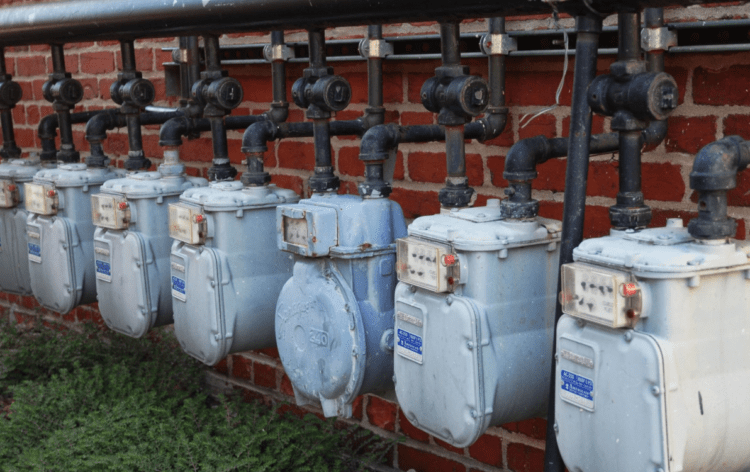The Situation of Current Natural Gas Market – Price Movements and Opportunities

Natural gas is an important commodity on the global market due to its widespread use in industries such as power generation, heating and transportation. It is a clean and relatively inexpensive fuel source that emits less carbon dioxide and other pollutants than coal or oil. Natural gas also became valuable for the market because of its simplicity of transportation via pipelines.
The natural gas market has seen significant fluctuations in recent years, impacted by a variety of factors such as supply and demand dynamics, weather patterns, and geopolitical tensions. The COVID-19 pandemic has also had a significant impact on the market, as lockdowns and travel restrictions reduced demand for natural gas in certain sectors such as aviation and tourism.
In this detailed overview, we will delve into the current situation around the natural gas market, exploring the factors driving prices and supply-demand imbalances. We will also examine the long-term outlook for natural gas, including the impact of emerging technologies such as renewable energy sources on the market.
Natural Gas Commodity Market – Is It A Good Investment?
Natural gas is one of the most important commodities in the world, with a reputation for being a reliable and relatively inexpensive fuel source. It is a highly traded commodity on the global market, with investors and traders alike seeking to capitalize on its potential for profit.
One of the primary reasons why traders are drawn to natural gas is its volatility. The natural gas market can experience significant fluctuations in price due to a variety of factors such as supply and demand imbalances, weather patterns, geopolitical tensions, and changes in production levels.
Demand and its often changes are the main that determines the value and price of the commodity. Production levels and storage capacity can impact the price of natural gas, as can the overall level of demand from consumers. Weather patterns, particularly during the winter months when demand for heating fuel is highest, can also have a significant impact on the market.
Note that mostly demand changes due to geopolitical tensions. For example, sanctions on natural gas exports from countries like Russia or Iran can create supply shortages, driving up prices for traders.
Despite its volatility, the natural gas market is generally considered to be relatively stable compared to other commodities such as oil or precious metals. This stability is due in part to the fact that natural gas is a widely available fuel source, with reserves located around the world. However, the market can still experience significant fluctuations in price over the short term, making it an attractive option for traders who are comfortable with a higher level of risk.
In addition to supply and demand dynamics, traders must also consider the cost of production, transportation costs, and storage costs. The price of natural gas futures contracts is also impacted by interest rates and inflation, as well as the overall level of economic growth and stability.
In conclusion, the natural gas market is an important commodity for traders, offering opportunities for profit while also carrying a higher level of risk. Traders must consider a variety of factors when trading natural gas, including supply and demand dynamics, geopolitical tensions, and production levels. Despite its volatility, the natural gas market is generally considered to be relatively stable compared to other commodities, making it an attractive option for those seeking to diversify their portfolio.
Current Overview of the Natural Gas Market: Different Regions
Last week, natural gas prices ended on a positive note, even though they remained unchanged from the previous week. The reason behind this was that the heating commodity managed to recover from the losses sustained throughout the five trading days to end Friday on a positive note, indicating a fading downside momentum. Due to high LNG imports, reduced demand, and milder weather, Europe was successful in avoiding a gas shortage crisis during the winter, resulting in a fall in natural gas prices to the levels witnessed in January 2022, right before the Russian invasion of Ukraine.
The current week saw front-month futures at the TTF hub, which is Europe’s gas trading benchmark, hovering around $47 (43 euros) per megawatt-hour (MWh), declining from over $142 (130 euros) at the beginning of the 2022/2023 winter heating season and the record high of $350 (320 euros) per MWh in August 2022. As a result of warmer winter weather and reduced LNG demand from Asia, Europe could fill its storage sites to appropriate levels before the heating season, with inventories exceeding historical averages upon exiting the season.
However, analysts warn that Europe should not count on another mild winter and less competition from Asia while preparing for the 2023/2024 winter. They predict that the next winter could be worse for Europe if Asian demand rebounds and intensifies the competition between the European and Asian markets for drawing more LNG supply, particularly from China.
Analysts also warn that stronger competition from Asia for LNG supply could result in the current European gas prices becoming insufficient to continue attracting spot cargoes. The European gas price is currently too low, and prices between 60 and 75 euros/MWh may be required in 2023 to keep demand in check, increase LNG imports, and maintain inventories at elevated levels.
According to SEB, the Swedish bank, the European TTF price is expected to increase in early to mid-April and average 60 euros/MWh in the second quarter of 2023, followed by 70 euros/MWh and 75 euros/MWh for Q3 and Q4, respectively. Even though Europe’s price is currently slightly higher than Asia’s, European importers may have to pay more for spot supply to compete with the Asian market, as Asian demand is predicted to rise later in the year due to the reopening of China.


























Comments (0 comment(s))